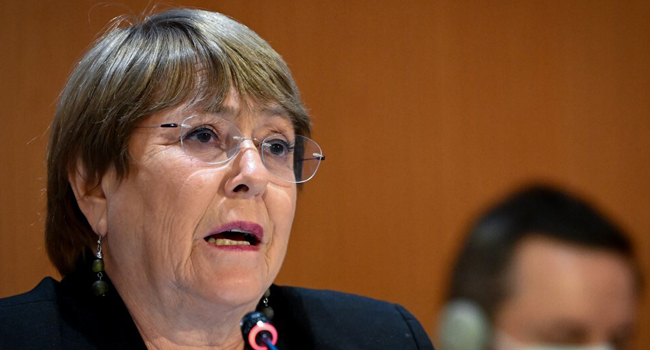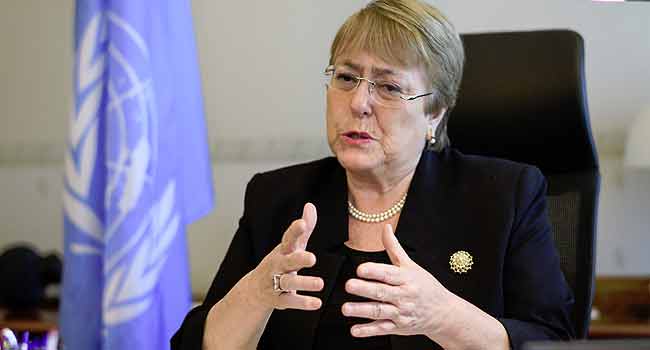
The UN rights chief on Tuesday called on Tunisian President Kais Saied to restore the High Judicial Council, warning that its dissolution would seriously undermine the rule of law.
Saied dissolved the body on Sunday, months after sacking the government and seizing wide-reaching powers in Tunisia, often lauded as the only democracy to emerge from the 2011 Arab revolts.
“Much remains to be done to bring justice sector legislation, procedures and practices in line with applicable international standards — but this has been a big step in the wrong direction,” UN High Commissioner for Human Rights Michelle Bachelet said in a statement.
“The dissolution of the High Judicial Council is in clear violation of Tunisia’s obligations under international human rights law.”
The High Judicial Council had been mandated to ensure the proper functioning of justice and the independence of the justicial authority in Tunisia. It was charged with appointing most judicial positions in the north African country.
The UN rights office pointed out that its establishment in 2016 had been seen as a major advance for the rule of law, separation of powers and the independence of the judiciary in Tunisia.
READ ALSO: Dozens Killed As Fighting Rages Around Yemen City
On Monday, Tunisian police blocked access to the council, preventing members and staff from entering the premises.
Bachelet’s statement also lamented that online hate campaigns and threats had been directed at the council’s members, and called for all necessary measures to be taken to ensure their safety.
It also highlighted that the dissolution of the council was only the latest of a series of worrying developments in Tunisia since Saied’s July 25 power grab.
“Since then, there have been increasing attempts to stifle dissent, including through harassment of civil society actors,” the statement warned.



